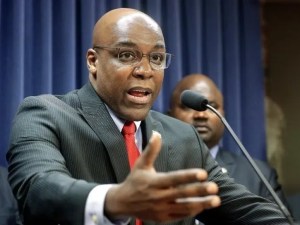Everyone seems to have a solution to Chicago’s violence these days, despite not much familiarity with the issues beyond the headlines and certainly beyond academia’s leading research. The latest entrant: Banking magnate and former U.S Commerce Secretary Bill Daley. He authored an OpEd in the Chicago Tribune on Wednesday March 1.
Let’s fact-check Daley’s letter to the Tribune that appeared last Wednesday.
- “Chicago gangs are increasingly using high-powered rifles to maim and kill each other (and innocent bystanders, too, of course).”
There is no evidence to support this assertion. Presumably, Daley is referring to a recent article about a couple of gangs turning to high caliber weapons in an ongoing war with each other, but hardly announces a citywide trend. In fact, Chicago Police Department officials themselves say that this kind of isolated incident is nothing new.
- “In 2006, New York increased its mandatory penalty for carrying a loaded illegal gun to 3 1/2 years in prison. Many factors affect violence, but one fact is stark: New York City, with a much larger population, had fewer than half as many homicides last year (334) as Chicago did.”
Yes, the old standby. No matter how many times this assertion has been debunked, it springs back to life whenever politically convenient. The facts, as laid out in most detail on the front page of the New York Times (story here), citing data from the city itself: Fewer than half the people eligible to be convicted to a mandatory minimum for possessing a weapon actually are because of plea bargaining. About 90-95% of all criminal cases in America that result in a conviction are disposed of through a plea bargain and not a trial. What this means is that defendants tend to plead to lesser charges and actually receive shorter sentences than the minimums they would face if they went to trial.
- Second, we must give police wider leeway to stop and search suspects for illegal guns. Many people wrongly believe a federal judge in New York City ruled that stop-and-frisk policies are unconstitutional. In fact, the judge specifically said such tactics can be legal if they don’t amount to racial profiling. A study of New York City’s stop-and-frisk policy, published last year in a Columbia Public Law Research Paper, concluded that targeted police stops “based on probable cause or (indications) of actual crime” were associated with “significant crime reductions.””
Wrong. Stop and frisk as practiced in New York City was ruled unconstitutional. Dead stop. Then that ruling was upheld by the federal appellate court. And that’s where it died; Mayor Bill de Blasio decided not to take the case to the U.S. Supreme Court.
The truth: Stop and frisk was probably one of the largest failures ever witnessed in policing. Crime in New York City was dropping dramatically before, during and after stop-and-frisk, with no causation found. [see chart]


- Washington Post, 9/26/16
Conclusion
For decades, non-experts like Daley have rehashed these same tired ideas for fighting crime. And for decades, the research has shown that none of these proposed remedies work. What’s almost always missing from the discussion among people like Daley is the one causation decades of research has found over and over and over: the nature of criminal violence most vexing Chicago is tightly connected to poverty, and the socioeconomic conditions of our least-served communities. Until that changes, the tune will remain the same – and the violence will continue.



